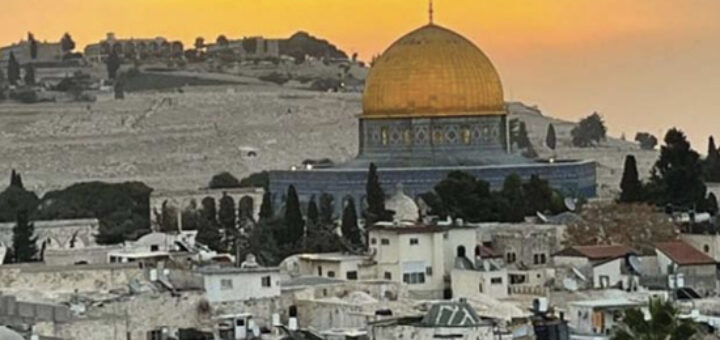Ramadan: A month of reflection

Annila Baigzada, Contributor
Ramadan, one of the most spiritual and holy months of the year. Depending on the sighting of the moon, Muslims will begin their month-long religious holiday this year on March 22 to April 20. While the Islamic calendar follows the lunar cycle, these expected dates can differ. For many Muslims, Ramadan brings a period of fasting, prayers and self-awareness. These few weeks are a sacred time to show worship and devotion to God.
During the holy month of Ramadan, Muslims fast every day from dawn to dusk. Fasting includes abstaining from eating, drinking, impure acts or thoughts and sinful actions like substance use, swearing, or backbiting. Instead, acts of worship are encouraged such as praying, reading supplications and verses from the holy book (Quran), giving to charity and connecting with the community at the local mosque.
I like to spend time at my mosque and holding organized fundraisers, donating my time and efforts to a shelter, and doing simple good deeds. It makes me feel fulfilled and thankful.
Every Ramadan, my parents and grandparents cook a delicious meal to break our fast, and it is always everyone’s favourite part of the day. Each day, Muslims must fast while the sun is out. When the sun sets, Muslims break their fast with a meal called ‘Iftar’ in Arabic. Iftar is a special time when one gathers with their family and friends for a blessed celebration. Iftar usually begins with eating dates or drinking sweetened milk.
Fasting can be invalidated or broken by eating or drinking at the wrong time, although this can be compensated for by fasting on another day (outside of Ramadan).
Elderly, women menstruating, nursing mothers, children, pregnant women and the weak are exempt from fasting but to compensate for missed fasts if unable to make them up, one must feed somebody in need a meal for every day they can’t fast (Quran 2:183-184).
At the end of the month, the Ramadan fast is celebrated with Eid Al-Fitr amongst all Muslims around the world. Eid Al-Fitr is one of the two Eids in the Muslim calendar. Eid is celebrated for three days and is a time to reflect, rejoice and connect with other Muslims around us.
Families wear their nicest clothes, parents give their children gifts or money, special foods and pastries are made, and people gather to pray. As a kid, I couldn’t wait to wear my Eid outfit and take pictures with my family. Days before Eid, I would pick out my favourite dress to wear. I remember waking up excited to get ready and going out to show all my friends and family. These are the moments and memories I cherish.
Even though I have experienced the joys and excitement of Ramadan and Eid every year, each Ramadan is different. Every year, I learn something new about myself, the people around me, and my faith.
It brings a certain type of vibe and light into the year and to myself. I always look forward to the month of Ramadan as it brings me a sense of calmness and reassurance. All around, it is one of the happiest and most rewarding times in the year for Muslims.




